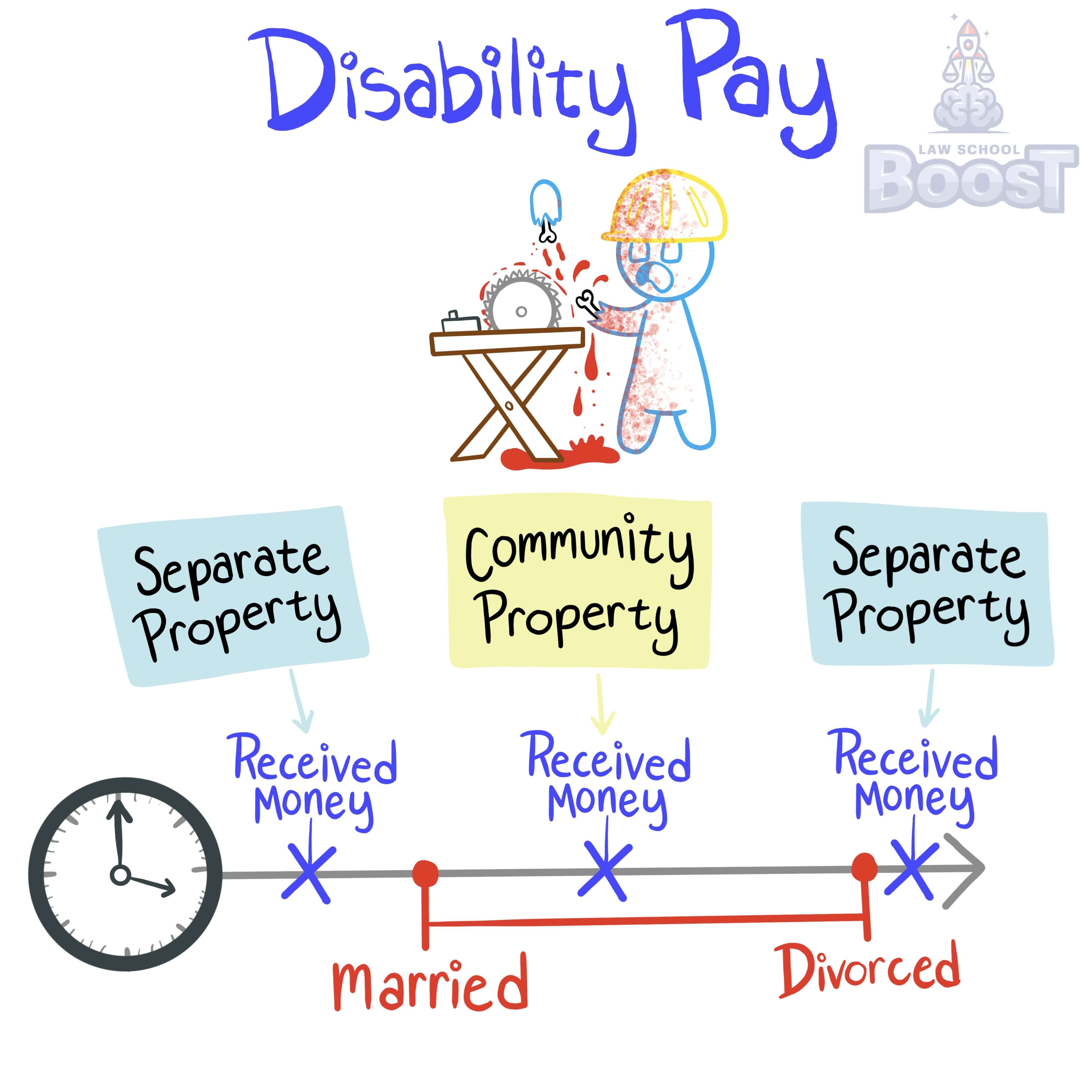🤧
Community Property • Disability Pay
CPROP#020
Legal Definition
Disability pay (including worker's compensation) is characterized by what it is intended to replace—earning during marriage (i.e., community property), or earnings before or after marriage (i.e., separate property). Disability retirement benefits and workers' compensation benefits are classified according to when received, not earned.
Plain English Explanation
Lots of times when someone gets hurt on the job, they can't work anymore so they get disability payments or workers' comp to replace their lost wages. The court has to decide if this money belongs only to the injured person (their separate property) or if it is shared with their spouse (community property). The key is when they get the money, not when they earned the right to it. If it comes during the marriage, it's usually considered community property that both spouses share. But if it comes before or after the marriage, then it stays the separate property of the injured person. This rule prevents arguments over who truly earned the money and keeps things simple by just looking at the timing of the payments. The court wants to be fair to both spouses while also making sure the injured person is taken care of first.
Hypothetical
Hypo 1: Bob, while married to Amy, gets injured at work and starts receiving disability payments. The payments start while they're still married and are intended to replace his salary during their marriage. Result: These disability payments are considered community property because they are replacing income that would have been earned during the marriage.
Hypo 2: After divorcing Amy, Bob gets injured and starts receiving disability pay. This pay is meant to replace earnings he would have made after the divorce. Result: Here, the disability pay is Bob's separate property because it replaces income he would've earned after the marriage ended.
Hypo 3: Bob is receiving disability payments for an injury that occurred before he married Amy. Result: These payments are considered Bob's separate property since they are intended to replace earnings from before the marriage.
Hypo 4: Amy and Bob are married. Bob is injured and is eligible for disability pay. However, the payments don't start until after they get a divorce. Result: The disability payments are Bob's separate property because they are received after the marriage has ended, even though the injury occurred during the marriage.
Hypo 2: After divorcing Amy, Bob gets injured and starts receiving disability pay. This pay is meant to replace earnings he would have made after the divorce. Result: Here, the disability pay is Bob's separate property because it replaces income he would've earned after the marriage ended.
Hypo 3: Bob is receiving disability payments for an injury that occurred before he married Amy. Result: These payments are considered Bob's separate property since they are intended to replace earnings from before the marriage.
Hypo 4: Amy and Bob are married. Bob is injured and is eligible for disability pay. However, the payments don't start until after they get a divorce. Result: The disability payments are Bob's separate property because they are received after the marriage has ended, even though the injury occurred during the marriage.
Visual Aids



